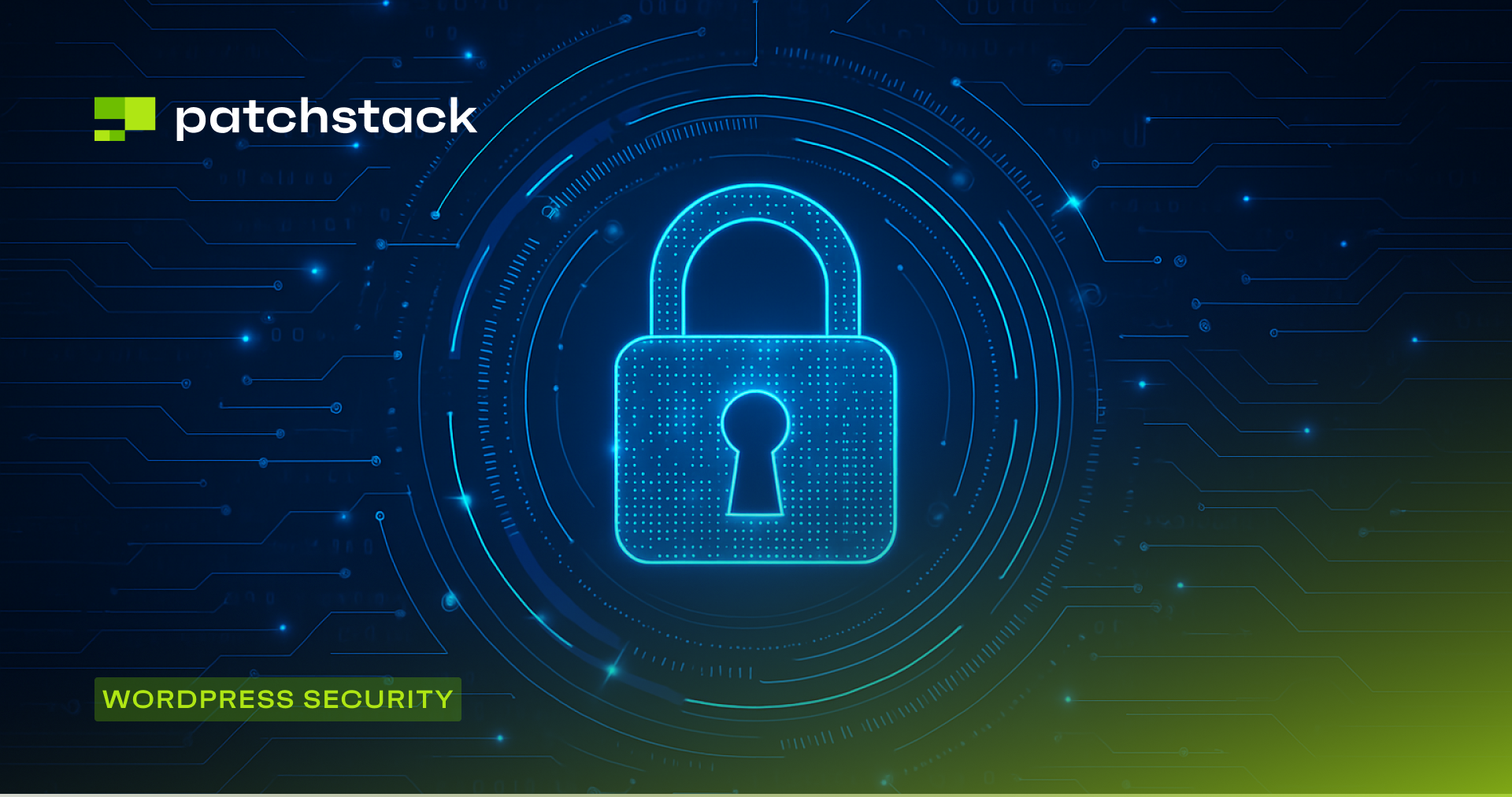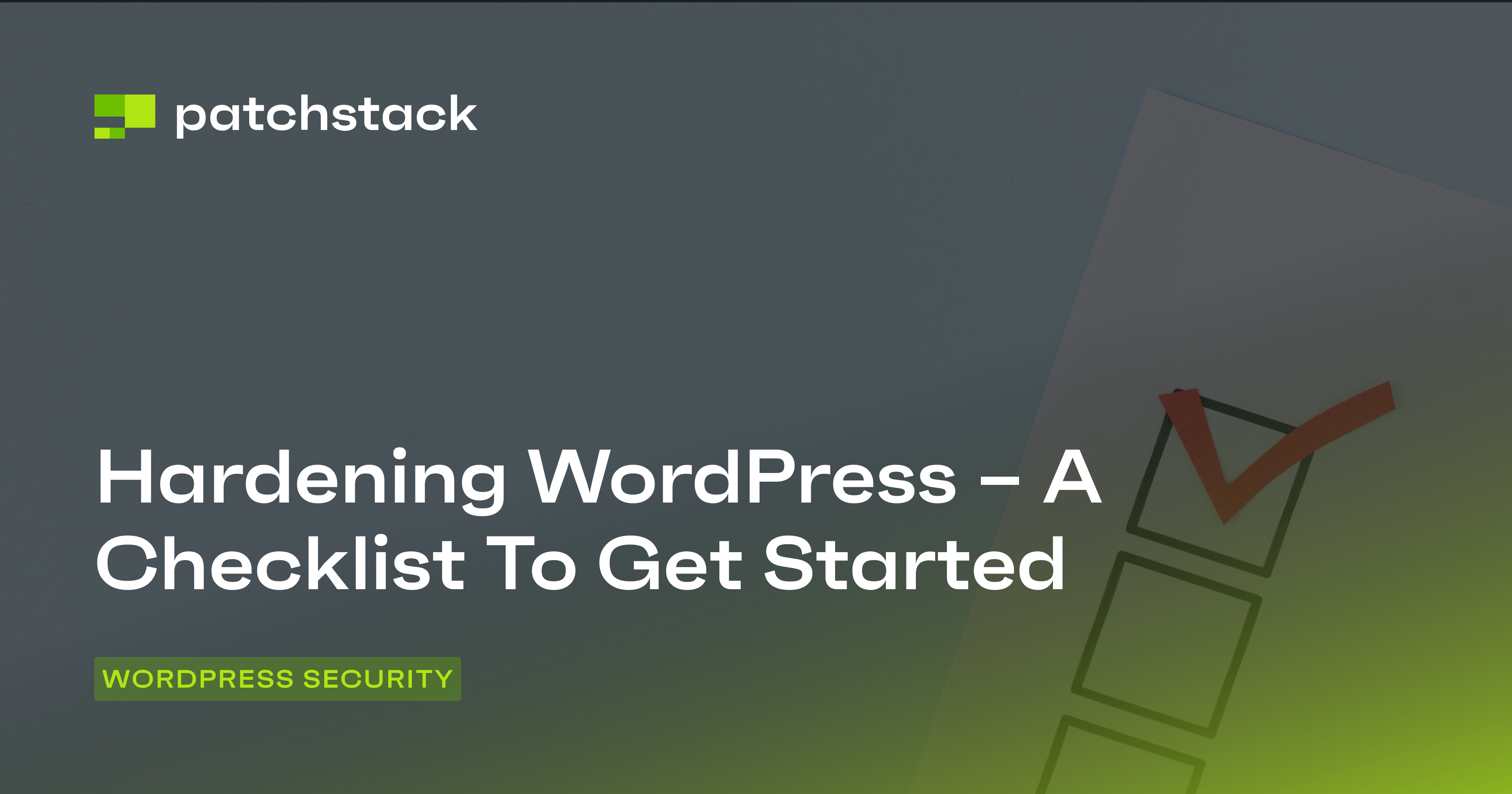“WordPress is insecure because it is open source.”
This common misconception assumes open-source software is more vulnerable simply because anyone can see the code and find flaws.
However, this is not the case. Open-source software can be more secure because it has a large and active community of developers and users who can review, test, and improve the code.
WordPress is the world's most popular content management system (CMS), powering over 40% of all websites. But is it safe to use? How secure is WordPress from hackers and malicious attacks? In this article, we will answer these questions and more.
Is WordPress more or less secure than its alternatives?
When choosing a website platform, one common question is whether WordPress is more or less secure than other options such as Squarespace, Shopify, Wix, Webflow, etc. The answer is not straightforward, as each platform has its advantages and disadvantages regarding security.
Most of the alternatives available in the market are proprietary and don’t offer the same flexibility and freedom as WordPress. There are no updates, and everything is managed on your behalf.
This means that with these WordPress alternatives, you don’t have to worry about updating your website, installing security plugins, or configuring your web host. The platform provider handles all your security aspects and ensures your website runs smoothly.
However, this also comes with some drawbacks.
If you are not in charge of securing your website, then it is a massive weight off your shoulders. However, you may have less control over your website's features, functionality, and design. You may also have to pay more for the services and features you need, as the platform provider may change their subscription fee anytime.
Moreover, even if the platform provider is responsible for your website's security, you might still suffer a breach or an attack.
For example, in 2020, Shopify compromised the login credentials of some of its merchants. In 2016, Wix was found to have a vulnerability that allowed hackers to take over any Wix website.
Using a managed platform might give you an illusion of security. Even though these hacks are few and far between, they do happen, and in such cases, there isn’t much that you, as an individual, can do – besides creating a support ticket and hoping.
WordPress, on the other hand, is an open-source and self-hosted platform that gives you more freedom and flexibility to customize your website. However, this also means that you have to take care of your website's security yourself, and if your website ever gets hacked, you’ll have to sort that out yourself as well.
Therefore, the security of your website depends largely on how you manage and maintain it, regardless of the platform you choose.
Top WordPress security concerns
Although WordPress is secure, it still faces several significant security challenges that website owners and administrators must address. Since it is so popular, it is a prime target for cybercriminals, who exploit various vulnerabilities to gain unauthorized access, compromise websites, and steal sensitive information. We will discuss this at length in the next section of this post.
Common security concerns include stolen credentials, often obtained through phishing attacks, and weak password policies, which can lead to unauthorized access to administrator accounts. Brute-force attacks on the WordPress login page are another significant threat that can compromise user data and site integrity.
If you use third-party code, malware installation is a persistent risk, as it can turn websites into spam distribution networks. If you run an online store, these security breaches can be particularly devastating, as they can potentially expose customer information and financial data.
To learn more about this topic, you should check out our previous post, where we talked to real hackers and explained how and why WordPress sites get hacked.
What are WordPress vulnerabilities, and how do they affect your website?
A WordPress vulnerability is a weakness or flaw in a theme, plugin, or WordPress core that a hacker can exploit. In other words, WordPress vulnerabilities create a point of entry that a hacker can use to pull off malicious activity.
Some of the malicious activities that hackers can perform on a vulnerable WordPress site include:
- Redirecting visitors to scam or phishing sites.
- Injecting malware or spam into your site’s content or database.
- Stealing sensitive data such as user credentials, payment information, or personal details.
- Using your website resources to launch attacks on other websites.
WordPress vulnerabilities can be classified into different types, depending on the nature and severity of the flaw. Some of the most common types of WordPress vulnerabilities are:
- Cross-Site Scripting (XSS): This occurs when a hacker injects malicious code into your site’s web pages, which then executes in the browser of your visitors or admins. XSS can be used to steal cookies, hijack sessions, or perform actions on behalf of the victim.
- SQL Injection (SQLi): This occurs when a hacker manipulates the SQL queries that your site uses to communicate with its database, allowing them to access, modify, or delete data. SQLi can be used to compromise your site’s integrity, confidentiality, or availability.
- Cross-Site Request Forgery (CSRF): This occurs when a hacker tricks a user into performing an unwanted action on your site, such as changing their password, deleting their account, or making a purchase. CSRF can be used to abuse your site’s functionality or resources.
To learn more about this topic, refer to our article, which covers many widespread WordPress vulnerabilities and explains how to protect against them.
How does WordPress handle security updates and patches?
WordPress is not immune to vulnerabilities – as no software is. However, WordPress has a strong reputation for being proactive and responsive to security issues. It has an active and dedicated team of security experts who constantly monitor and fix any reported or discovered vulnerabilities.
WordPress releases regular updates and patches that address any security issues. These updates are categorized into three types:
- Major updates: These are released every few months and introduce new features, enhancements, bug fixes, and any needed security fixes. They are indicated by a change in the first digit of the WordPress version number, such as 5.9 or 6.0.
- Minor updates: These are released more frequently and focus on fixing security issues and bugs. They also include any compatibility or performance improvements. Minor updates are indicated by a change in the second digit of the WordPress version number, such as 6.1 or 6.3.
- Security updates: These are released as soon as possible when a critical security issue is found.
WordPress updates are usually automatic, meaning your site will download and install them without you taking action. However, you can also manually update your site if you prefer. You can check the current WordPress version and update the status from your site’s dashboard.
Does having the latest version of WordPress make your site bulletproof?
No! Updating WordPress will only address vulnerabilities in the WordPress core. A fully updated WordPress website can be insecure. Our State of WordPress Security report found that only about 0.58% of security vulnerabilities come from the WordPress core.
Updating your WordPress core, plugins, and themes is essential, but it is not enough to protect your site from hackers and malware. Various security flaws can arise even when your website is fully updated, such as:
- Weak passwords and user permissions: Hackers can easily guess or crack your login credentials if you use weak or the same passwords for multiple accounts.
Similarly, giving too many users access to your site or assigning them unnecessary privileges increases the risk of unauthorized changes or malicious actions. You should always use strong and unique passwords, limit the number of users, and assign them the appropriate roles and capabilities.
- Insecure web hosting: Your web host plays a vital role in your site’s security. If your web host is not secure, your site may be vulnerable to attacks from hackers or malicious users who share the same server. You should always choose a reputable and secure web host with features such as SSL certificates, firewall protection, and DDoS prevention.
- Outdated or unused plugins and themes: You may have outdated or unused plugins and themes installed on your site. These plugins and themes may contain security vulnerabilities that hackers can exploit to access your site or inject malicious code. You should always delete any plugins and themes you don’t need.
- Using nulled themes and plugins: These are often distributed by hackers or unscrupulous websites that modify the original code to insert malware or remove security features. Therefore, avoiding using nulled themes and plugins is advisable instead of purchasing them from reputable sources or using free alternatives.
Best practices for keeping your WordPress site secure
WordPress security is not the sole responsibility of your hosting provider. While they provide some essential security features and services, they are not enough to protect your site from all possible threats. You still need to take proactive and preventive measures to secure your site.
WordPress does a great job of keeping your site secure, but there are also some steps that you can take to enhance its security and prevent potential attacks.
To secure your WordPress site on your own, you must follow some of the best practices mentioned in our previous articles, such as updating your WordPress core, themes, and plugins, using strong passwords, enabling 2FA, and installing a security plugin. You must also be aware of the common WordPress vulnerabilities and how to prevent them.
We have published a lot of interesting articles that can guide you. To learn more about WordPress security and how to secure your site on your own, you can check out these resources:
- How to Protect Your WordPress Site Against Brute Force Attacks
- How to Block IP Addresses in WordPress
- How to Limit Login Attempts in WordPress
- How to Secure Your WordPress Login URL
- The Complete Guide to WordPress Security
Do’s and don’ts in WordPress security
This section will provide some essential tips on keeping your website safe from cyber attacks.
Don’t use plugin-based malware scanners
Although plugin-based malware scanners are helpful, they are not infallible. These scanners rely on heuristics or pattern-matching algorithms, which can be evaded by clever malware. On the other hand, some scanners excel at detection but struggle with false positives, which makes them less useful.
The worst part is that malware scanners wait until your website is infected to detect them. If you want a proactive approach, you should use Patchstack, a WordPress vulnerability detection plugin that automatically protects your website if any vulnerabilities are identified.
But using Packstack is just one piece of the puzzle. At Patchstack, we recommend a multi-layered approach that combines different scanning techniques with human expertise, as this is often more effective in identifying and removing malicious code.
Secure websites before they go live
Some developers use basic and insecure passwords when developing websites, but we believe website security should be prioritized when a site becomes publicly accessible.
You might think that your site barely gets any traffic and that hackers won’t spend resources to try to hack it. But this is completely wrong!
Hackers constantly scan the Internet for vulnerabilities, outdated software, and configuration errors. Even seemingly unimportant sites can be targeted for watering hole attacks or to host malware. Once hacked, these sites are used for other malicious purposes, such as cloaking and phishing emails. Read our “What Is SEO Spam And Cloaking?” post to learn more.
Don’t rely on plug-and-play WordPress security
As long as your website is on the Internet, it is constantly under attack. No matter how you protect it, you should not set it and forget it. No service can guarantee 100% security, as it's an ongoing risk management process.
Daily, dozens of new vulnerabilities are discovered in WordPress plugins and themes. Hackers can exploit this and take control of all the websites on your server, even if only one of your sites is using the vulnerable version. Therefore, using WordPress security services to protect your WordPress site is always recommended.
However, relying solely on security plugins or third-party services without understanding the underlying principles can create a false sense of security. You should also actively check your security logs and stay informed about potential threats.
Read our post on the best activity log plugins to determine which plugin suits your needs.
What do you do when a website is hacked?
If you suspect your website has been hacked, you need to take action immediately.
First, you should isolate the site to prevent further damage. You can do this by blocking the network access to the site and enforcing firewall rules to stop unauthorized traffic from the server.
Once you have isolated the site, conduct a thorough security audit to identify the extent of the breach. If your network has multiple servers, you should check all the servers instead of just the one infected by malware.
Next, if available, you should restore from a clean backup, but ensure the vulnerability is patched first. This can be challenging, but fortunately, many cybersecurity companies offer website cleaning services.
Finally, you should strengthen security measures and monitor closely to prevent future attacks. Our Complete Guide To WordPress Security is a great place to learn about security!
Final thoughts
WordPress is a secure and reliable platform that powers millions of websites worldwide. However, no software is perfect, and WordPress can still face security challenges and threats from hackers and malicious actors. That’s why you need to take responsibility for your site’s security and follow the best practices and tips we have shared in this article.
By keeping your WordPress core, themes, and plugins updated, using strong passwords and 2FA, installing a security plugin, and following the other best practices, you can significantly reduce the risk of getting hacked or compromised and enjoy a safe and smooth WordPress experience.
If you want to learn more about WordPress security, we highly recommend you read our whitepaper, WordPress Security Stats. It contains valuable insights and data on WordPress security, the most common vulnerabilities, the most vulnerable plugins and themes, and more.
Patchstack maintains a real-time database that tracks and monitors all reported or discovered WordPress vulnerabilities. You can search, filter, and sort the vulnerabilities by various criteria.
Using Patchstack, you can also get notified 48 hours before a vulnerability is publicly disclosed, giving you enough time to update or patch your site.
Leading security experts trust Patchstack in the WordPress community. You can try Patchstack for free and see how it can improve your WordPress security.
FAQs on WordPress security
Is WordPress secure out of the box?
WordPress core is generally secure, but it's not invulnerable. Many security issues arise from outdated software, weak passwords, or vulnerable plugins and themes. Maintaining a secure WordPress site requires ongoing attention and best practices.
Do I need a security plugin for my WordPress site?
While security plugins can be helpful, they're not a complete solution. They can provide additional layers of protection but shouldn't be relied upon exclusively. Proper configuration, regular updates, and good security practices are equally important. Check out Patchstack for monitoring your WordPress security.
How often should I update WordPress and its plugins?
You should update WordPress core, plugins, and themes as soon as security updates are available. It's wise to test in a staging environment first for feature updates.
Can using a strong password make a difference?
Absolutely. Strong, unique passwords are your first line of defense against brute-force attacks. Use a combination of uppercase and lowercase letters, numbers, and symbols. Consider using a password manager to generate and store complex passwords securely.
Is shared hosting secure for WordPress sites?
Shared hosting can be secure if the provider implements proper isolation between accounts. However, it may be more vulnerable to certain attacks than dedicated or managed WordPress hosting.
Do I need an SSL certificate for my WordPress site?
An SSL certificate is needed to encrypt data transmission between your server and visitors' browsers. It protects sensitive information, boosts your site's SEO, and builds trust with users. Many hosting providers offer free SSL certificates through Let's Encrypt or ZeroSSL.
Can I make my WordPress admin area more secure?
You can enhance admin security by changing the default login URL, implementing two-factor authentication, and limiting login attempts. Also, use strong passwords for all admin accounts and avoid using "admin" as a username.
How can I protect my WordPress site from brute-force attacks?
Implement measures such as limiting login attempts, using strong passwords, and enabling two-factor authentication. You can also consider using a web application firewall (WAF) or security plugins that offer brute-force protection features.
Are free WordPress themes and plugins safe to use?
Not all free themes and plugins are created equal in terms of security. Only download themes and plugins from reputable sources, like the official WordPress repository. Before installing, check reviews, update frequency, and the developer's reputation.
How often should I back up my WordPress site?
For active sites, you should back up your WordPress site regularly, ideally daily. Moreover, you should store backups in a secure, off-site location for maximum security.
Is it necessary to hide my WordPress version number?
While hiding the version number can make it slightly harder for attackers to identify vulnerabilities, it's not a robust security measure. Focus on keeping WordPress updated and following security best practices instead of relying on security through obscurity.
Can I scan my WordPress site for malware myself?
Various tools and plugins are available for malware scanning but are not foolproof. Professional security services often provide more thorough scans. Your best defense against malware is regularly monitoring, updating software, and maintaining good security practices.





